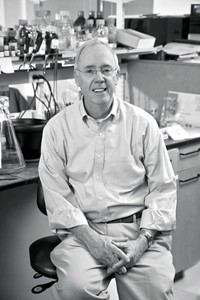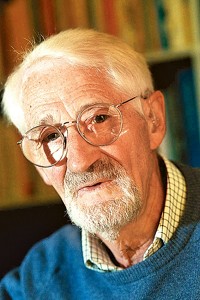Advertisement
Grab your lab coat. Let's get started
Welcome!
Welcome!
Create an account below to get 6 C&EN articles per month, receive newsletters and more - all free.
It seems this is your first time logging in online. Please enter the following information to continue.
As an ACS member you automatically get access to this site. All we need is few more details to create your reading experience.
Not you? Sign in with a different account.
Not you? Sign in with a different account.
ERROR 1
ERROR 1
ERROR 2
ERROR 2
ERROR 2
ERROR 2
ERROR 2
Password and Confirm password must match.
If you have an ACS member number, please enter it here so we can link this account to your membership. (optional)
ERROR 2
ACS values your privacy. By submitting your information, you are gaining access to C&EN and subscribing to our weekly newsletter. We use the information you provide to make your reading experience better, and we will never sell your data to third party members.
People
Enzymologist William Jencks Dies At 79
Attendees at 20th Enzyme Mechanisms Conference mourn loss of meeting's cofounder
by Stu Borman
January 8, 2007
Attendees at the 20th Enzyme Mechanisms Conference (EMC) in St. Pete Beach, Fla., learned on Jan. 5 that Brandeis University professor emeritus of biochemistry William P. Jencks, 79—who cofounded the meeting in the 1960s and is considered to be one of the founding fathers of mechanistic enzymology—died on Jan. 3 after a long illness.
"A very fine, generous, extraordinary person has passed away," said chemistry professor John P. Richard of the State University of New York, Buffalo, when he announced Jencks's death at the EMC meeting. "About 50 years ago, Bill decided to understand how enzymes work, how they catalyze chemical reactions, and how they stabilize transition states for these reactions. At the time, this was an impossibly complicated problem."
Jencks was well-known to many attendees at the conference. After hearing the news from Richard around noon on Friday, a number of them discussed it quietly, some with tears in their eyes.
Jencks did pioneering research on the molecular mechanisms by which enzymes catalyze reactions in living cells. He showed how enzymes reduce entropic barriers to such reactions by controlling the positions of substrates, how enzyme conformational changes can be used to speed thermodynamically unfavorable reaction steps, how transient intermediates form in enzymatic reactions, and how enzymes activate substrates by removing or donating protons or hydride ions.
Jencks and coworkers also studied the mechanisms of nonenzymatic reactions in aqueous solution and made fundamental contributions to understanding how chemical reactions influence motion-related biological processes, such as the translocation of ions across membranes.
Jencks was born on Aug. 15, 1927, in Bar Harbor, Maine. He earned an M.D. from Harvard Medical School in 1951 and interned at Peter Bent Brigham Hospital, in Boston. He then served as a staff member and later as chief of the Army Medical Service Graduate School department of pharmacology at Walter Reed Army Medical Center, Washington, D.C.
In the mid-1950s, he was a postdoc at Massachusetts General Hospital, Boston, and Harvard University, the latter position in the group of late chemistry professor Robert B. Woodward. In 1957, he moved to Brandeis, where he served as assistant professor, associate professor, and professor of biochemistry until 1996 and as professor emeritus of biochemistry after that.
Honors that Jencks received include the 1962 ACS Award in Biological Chemistry, the 1993 American Society of Biological Chemists Award, the 1995 ACS James Flack Norris Award in Physical Organic Chemistry, and the 1996 ACS Repligen Award for Chemistry of Biological Processes. He was a member of the National Academy of Sciences, a foreign member of the Royal Society, and a member of the American Philosophical Society.
Jencks's mechanistic interests also apparently extended beyond chemistry. At a 1996 symposium in honor of Jencks, Jack F. Kirsch of the University of California, Berkeley, recounted that on Jencks's daily drive from Lexington to Waltham, Mass., "he checked his progress, targeted at a precise 9 AM arrival, by a clock that was prominently visible on a highway billboard ad for a company that manufactured safes. There was a period when the clock stopped functioning, and Bill wrote a letter to the company, saying that his confidence in their safes was shaken by the fact that they could not keep their clocks going. The clock was fixed within a week."





Join the conversation
Contact the reporter
Submit a Letter to the Editor for publication
Engage with us on Twitter